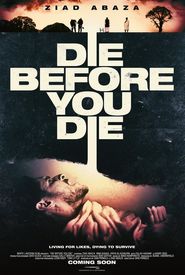Mim Shaikh is a multifaceted individual with a passion for broadcasting that was established during his time at the University of Leeds, where he studied Broadcast Journalism and graduated in 2012.
During his university days, Shaikh's talent and dedication to broadcasting earned him several awards, including the Student Radio Awards for 'Best Specialist Music Programming' and 'Best Interview' for his work at Leeds Student Radio.
His impressive skills also caught the attention of the Broadcast Journalism Training Council, which awarded him the 'Best News Feature' award.
After graduating, Shaikh began his career in broadcasting by interning at BBC Radio 1's 'Newsbeat' before landing his own radio shows on the BBC Asian Network and BBC Radio 1Xtra.
In addition to his broadcasting career, Shaikh has also ventured into documentary production and presentation. His self-authored documentary, 'Mim Shaikh: Finding Dad', which explored his personal journey to meet his biological father in Kashmir, aired on BBC Three and was nominated for the Asian Media Awards' 'Best Factual Programming' category.
Shaikh's versatility as a broadcaster and documentary maker has also led to him appearing on other notable projects, including the BBC Documentary series 'Pilgrimage: The Road to Istanbul', where he shared his thoughts on his faith as a Muslim, and the BBC's 'Celebrity Masterchef'.
In 2023, Shaikh presented a podcast series, 'Aik Cup Chai', with the Independent Urdu, which aimed to provide a platform for South-Asians to share their personal stories. He was also granted the 'Identity Storyteller Award' from the Greater London Authority in 2024.
As an actor, Shaikh has had a successful career, starring in a range of films and television shows, including the Channel 4 Drama series 'Queenie' (2024),the romantic-comedy 'What's Love Got to do With It?' (2023),the BBC Crime Drama 'Informer' (2018),the British-Indie feature film 'Freehold' (2018),the BAFTA-Award winning short film 'Sunni // Shia' (2016),and the short film 'Daytimer' (2014).






















